Gontarski - Revisioning Beckett
Here you can read online Gontarski - Revisioning Beckett full text of the book (entire story) in english for free. Download pdf and epub, get meaning, cover and reviews about this ebook. publisher: Bloomsbury, genre: Detective and thriller. Description of the work, (preface) as well as reviews are available. Best literature library LitArk.com created for fans of good reading and offers a wide selection of genres:
Romance novel
Science fiction
Adventure
Detective
Science
History
Home and family
Prose
Art
Politics
Computer
Non-fiction
Religion
Business
Children
Humor
Choose a favorite category and find really read worthwhile books. Enjoy immersion in the world of imagination, feel the emotions of the characters or learn something new for yourself, make an fascinating discovery.
- Book:Revisioning Beckett
- Author:
- Publisher:Bloomsbury
- Genre:
- Rating:3 / 5
- Favourites:Add to favourites
- Your mark:
- 60
- 1
- 2
- 3
- 4
- 5
Revisioning Beckett: summary, description and annotation
We offer to read an annotation, description, summary or preface (depends on what the author of the book "Revisioning Beckett" wrote himself). If you haven't found the necessary information about the book — write in the comments, we will try to find it.
Revisioning Beckett — read online for free the complete book (whole text) full work
Below is the text of the book, divided by pages. System saving the place of the last page read, allows you to conveniently read the book "Revisioning Beckett" online for free, without having to search again every time where you left off. Put a bookmark, and you can go to the page where you finished reading at any time.
Font size:
Interval:
Bookmark:
Revisioning
Beckett
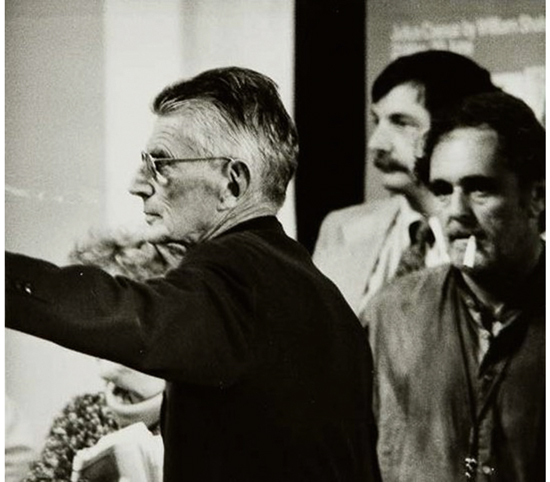
Samuel Beckett (left) and S. E. Gontarski (back). In between is Rick Cluchey. Photograph by John Minihan. University College Cork
Revisioning
Beckett
Samuel Becketts
Decadent Turn
S. E. Gontarski

For Marsha,
Yet again,
For all
She is
Chance furnishes me what I need. I am like a man who stumbles along; my foot strikes something; I bend over, and it is exactly what I want. James Joyce to Jacques Mercanton (The Hours of James Joyce, 1962, 213)
[] here begins the freedom of the mind, or rather the possibility that in the course of time the mind will be free to write what it likes. Virginia Woolf on Aphra Behn (A Room of Ones Own, Ch. 4, 64)
Readers coming to the work of S. E. Gontarski for the first time should understand some of the context that surrounds his career, because so much of this context underlines that this work is no distant academic affair. As the old clich has it, Stanley Gontarski has skin in the game. Indeed, Gontarski taught me firsthand that being a literary critic does not involve offering an overview, as if from Olympus, or authoritative ruminations on what one has read and others have done, as if in a comfortable armchair by the fireside. If pursing the former image (the critic as God) leads inevitably to bathos, pursing the latter (the critic as self-aggrandizing Ivy League or Oxbridge don) leads equally ineluctably to a crisis of interpretation, as no one, however privileged, occupies the seat of meaning. The critic is, rather, an actor, like anyone else.
While it has often been denied, and they have often been derided, critics are essential parts of the ecosystem that allowed Samuel Becketts works to emerge, and critics continue to help those works thrive. One could put it another way: Becketts relations with critics he knew personally, like Ruby Cohn, James Knowlson, Herbert Blau, Martha Fehsenfeld, and S. E. Gontarski (the list is quite long and Ive left many people out), opened a dialogue that was two way. A whole critical milieu emerged out of the encounter, especially in theater studies, and in consequence the discipline itself changed around the world through the 1960s, 1970s, and 1980s. These changes would not have been possible in the same way without the exchanges between Beckett and the critics. Much the same could be said of Becketts engagement with publishing and avant-garde writing through the come and go between Beckett and the milieus surrounding Editions de Minuit in Paris, Calder in London, and Grove Press in New York, and critical works also helped those scenes to grow. So too, Becketts own work was affected, sometimes directly, by these encounters.
For an example of how Beckett was affected one does not have to look further than the genesis of Becketts extraordinary late play Ohio Impromptu. A critic who wanted to be a part of the creative process as much as concerned with it, the young Stanley Gontarski wrote to Beckett and asked him if he might have a new play that could be performed at a conference Gontarski was planning to celebrate Becketts seventy-fifth birthday, to take place at Ohio State University in 1981. Beckett initially replied that he had nothing to hand, but, just as invitations to offer new work would lead to other late plays (Catastrophe and both the theater and television versions of What Where, for example), the idea intrigued Beckett and so he wrote a play for the occasion.
Gontarski not only knew Beckett, but other actors on the scene. Becketts New York publisher, the larger-than-life Barney Rosset, became a close friend. Gontarski was also close to Herbert Blau, who, not without attracting criticism, demonstrated how one might move between the theatrical and critical worlds, with, in Blaus view, the work of criticism as much a performance as a work of theater.
Having been very much on the scene as Beckett worked in the theater in his last years, Gontarski was crucial to the documentation of the process, editing The Theatrical Notebooks of Samuel Beckett: The Shorter Plays and The Theatrical Notebooks of Samuel Beckett, Vol. II, Endgame. His interests were not just in Becketts theater, however, as he also edited Samuel Beckett: The Complete Short Prose, 19281989. In addition, over the years he has written and edited many major books on Becketts works. Confirming his status as one of the preeminent critics in the field he took over the editorial responsibilities for The Journal of Beckett Studies from 1989 to 2008. In short, then, Gontarskis name has, for many years, been inextricably linked with Becketts.
Yet he has not been content to rest in place. Rather than ever more quietly repeating ideas uncovered while Beckett was alive Gontarski has moved on in his own work, bringing literature into dialogue with philosophy, and the work of Henri Bergson and Gilles Deleuze in particular. Following Bergson, perhaps, Gontarski has seen that thought never ceases to move and that the work of the critic, of participating in creation, opening the way to it and from it, is ongoing.
It is not my intention to offer an introduction to the essays collected here. Rather, I simply mean to encourage readers to imagine these essays as part of something organic, an ecosystem of creative activity named Beckett that remains very much alive. In this collection, Gontarski, in returning to Becketts works and those that surrounded them from a different perspective, sees things again, offering us new ways of understanding.
Anthony Uhlmann
Western Sydney University
Among the pleasures of publication the opportunity to acknowledge publicly the support and advice one receives from family, colleagues, and editors is especially gratifying. In this case I am happy to thank Haaris Naqvi, editorial director at Bloomsbury Academic, not only for his guidance in shaping this current book, Revisioning Beckett: Samuel Becketts Decadent Turn, but, over the past several years, for his help on and support of the book series that I coedit (with professors Paul Ardoin and Laci Mattison) for Bloomsbury called Understanding Philosophy, Understanding Modernism, two volumes of which, those on Henri Bergson and on Gilles Deleuze, my general coeditors and I edited to launch the series. Such a fruitful and personal editorial relationship has, unfortunately, grown all too rare in our current climate of corporate publishing. Happily, my coeditors and I have found such nurturing at Bloomsbury. I am grateful as well that my longtime collaborators and coauthors have supported this volume. Anthony Uhlmann, who wrote its Preface and with whom I share philosophical and theoretical sympathies, has been a stalwart ally for many years now. And the encyclopedic-minded annotator par excellence, Chris Ackerley has brought his eye of prey to bear on these essays and in the process has saved me from any number of blunders. And, of course, few things are possible in my world without home-front support, and for that I thank my wife, Marsha, who has been on this crazy adventure with me for over fifty years now, and to whom this book is, once again, come sempre, dedicated.
Earlier versions of the essays that comprise Revisioning Beckett: Samuel Becketts Decadent Turn have been generated initially by a variety of speaking invitations, Festschriften requests, and other occasional presentations and publications. I am indebted to the conveners of those meetings and to the editors of those publications for permission to reprint the essays here collected, with appropriate acknowledgments and, in most cases, in considerably revised, altered, and expanded versions.
Next pageFont size:
Interval:
Bookmark:
Similar books «Revisioning Beckett»
Look at similar books to Revisioning Beckett. We have selected literature similar in name and meaning in the hope of providing readers with more options to find new, interesting, not yet read works.
Discussion, reviews of the book Revisioning Beckett and just readers' own opinions. Leave your comments, write what you think about the work, its meaning or the main characters. Specify what exactly you liked and what you didn't like, and why you think so.

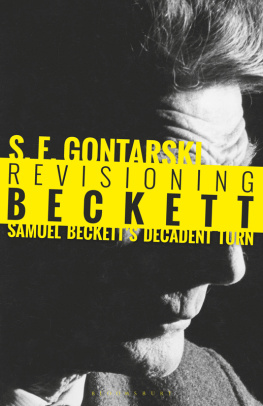
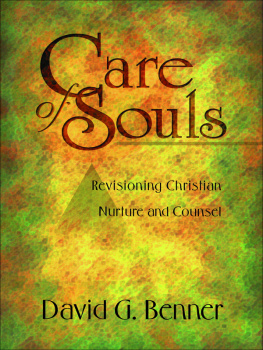
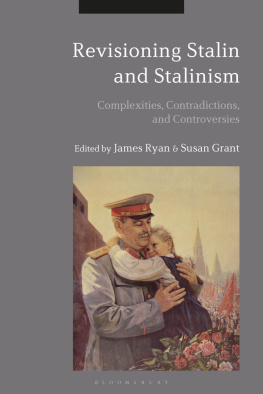
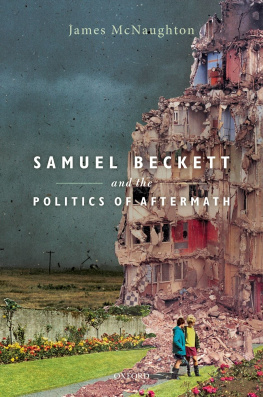
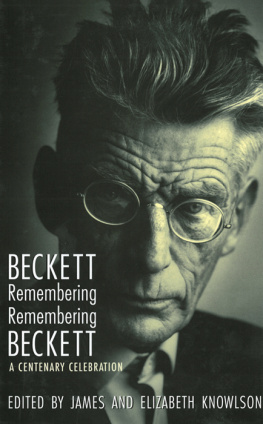
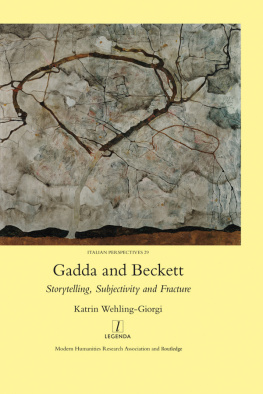

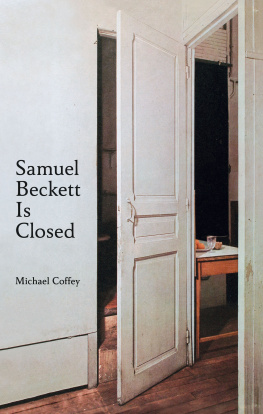
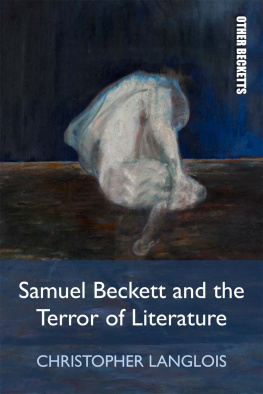
![Samuel Beckett [Samuel Beckett] - The Complete Dramatic Works](/uploads/posts/book/72751/thumbs/samuel-beckett-samuel-beckett-the-complete.jpg)